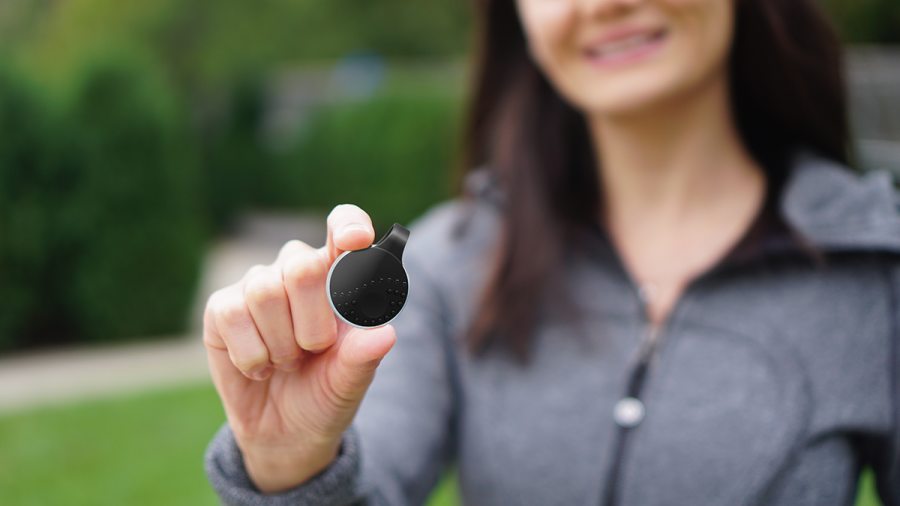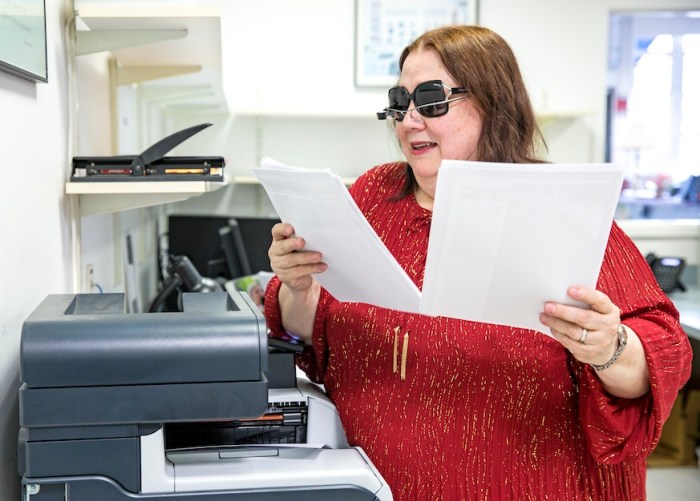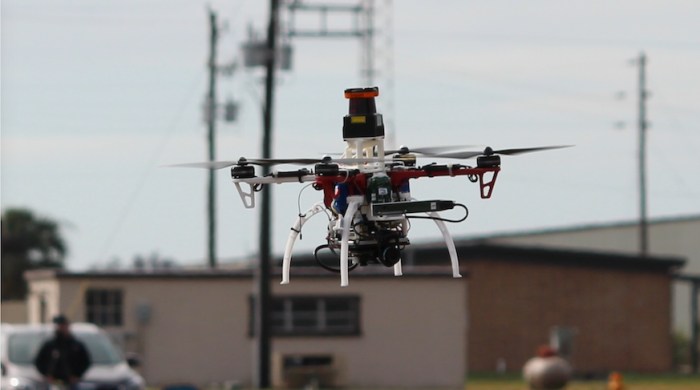It’s a sad fact that we’re still living in a world where women, in some places and situations, aren’t safe to be alone.
However, U.S. start-up Roar for Good is doing its bit to keep those most at risk from violent crime feeling unassailable through wearable technology.
Athena is a smart – and discreet – piece of jewelry-come-rape alarm that’s designed to clip onto a bag and clothing, or even worn as a necklace. Should a woman feel in danger, she just has to press the button for three seconds which triggers a loud alarm and sends a text to a predetermined set of contacts with your GPS location, letting them know you’re in a threatening situation and that immediate attention is needed. There’s also a silent mode, which sends texts to friends and family, for when a wearer feels frightened but doesn’t want to alert the potential source of danger. The gadget – currently available in black, antique silver and rose gold for $150 – is the brainchild of Roar for Good’s CEO Yasmine Mustafa. The creator explains to Metro why this is the safest and most stylish piece of personal protection on the market. What led you to develop Athena? Is there a story behind this device?
After I sold my last company in 2011, I decided to take some time away from the computer and figure out where I wanted to take my career. I ended up embarking on a six-month solo trek throughout South America. While the trip was incredible, I met so many women (both locals and travelers) who shared their harrowing experiences with violence and assault. And then one week after I returned to Philadelphia, a woman was brutally attacked and raped just a block from my apartment. That’s when I knew what I wanted to do next with my life, and that’s when the idea for ROAR for Good was born. How does this device work?
The device has two modes: in an aggressive situation like if you’re grabbed, there’s the alarm mode. It emits loud pulsing beeps similar to a fire alarm (85 decibels) to scare off an attacker and alert those around you that there’s trouble. Second, it sends a text to a predetermined set of contacts with your GPS location, letting them know you’re in a threatening situation and that immediate attention is needed. We’re also working on having it call 911. The second silent mode is for those “just in case” situations (e.g. you get in a cab and feel uncomfortable). It will send text messages to your emergency contacts asking them to come get you or to get in touch right away. The Athena device has a circuit board with LEDs, a buzzer, and low-energy bluetooth which is how it connects to your smartphone. The mobile application saves your emergency contacts and sends customized text messages with your location. What advantages does Athena offer over others devices and apps (Siren ringtones and Companion app) that aim to protect women on the streets?
We built Athena after 16 months of surveys, focus groups, and user testing to effectively serve as a deterrent. And we did it in collaboration with the police and self-defense instructors. This has helped us build better solutions. Athena, unlike devices that can be worn on your hand or wrist, is designed to be versatile and worn in multiple ways (as a necklace, clipped on to your clothing or attached to a key fob). We ran self-defense classes and simulated mock attacks where we found that the worst place to wear a safety device is in your wrist or finger as it limits your mobility if grabbed. So a key advantage is our testing and the fact that the device can be used by either hand. In terms of how it’s different from mobile applications, we designed Athena as a wearable, so it’s readily available in case something happens, whereas other apps and devices require the wearer to find their phone and app. Why is your campaign only targeted at women?
We’ve targeted our messaging to mainly women because of the horrifying statistics, but we intentionally made the design unisex so anyone can benefit from it. It’s a simple design with LED lights and the men who have ordered the device so far have said they would get the black color option. Anyone who can benefit from life-saving help – children, elderly, and people of all genders – can use Athena in the way that best suits their lifestyle. Why did you decide to develop this device as a fashionable wearable?
In our research, we discovered that most women don’t like existing self-defense tools because they found them intimidating to use, bulky, and it may not be legal. When we learned that they were left behind or not used because of those reasons, we tested the idea of having something that looks nice and can also work as a deterrent. It went well and we learned that making Athena as fashionable jewelry would mean people would be more likely to wear it, and thus it could help more women in case of threatening situations. – ByDaniel Casillas
‘Athena’ wearable device claims to combat sexual assault

Provided















